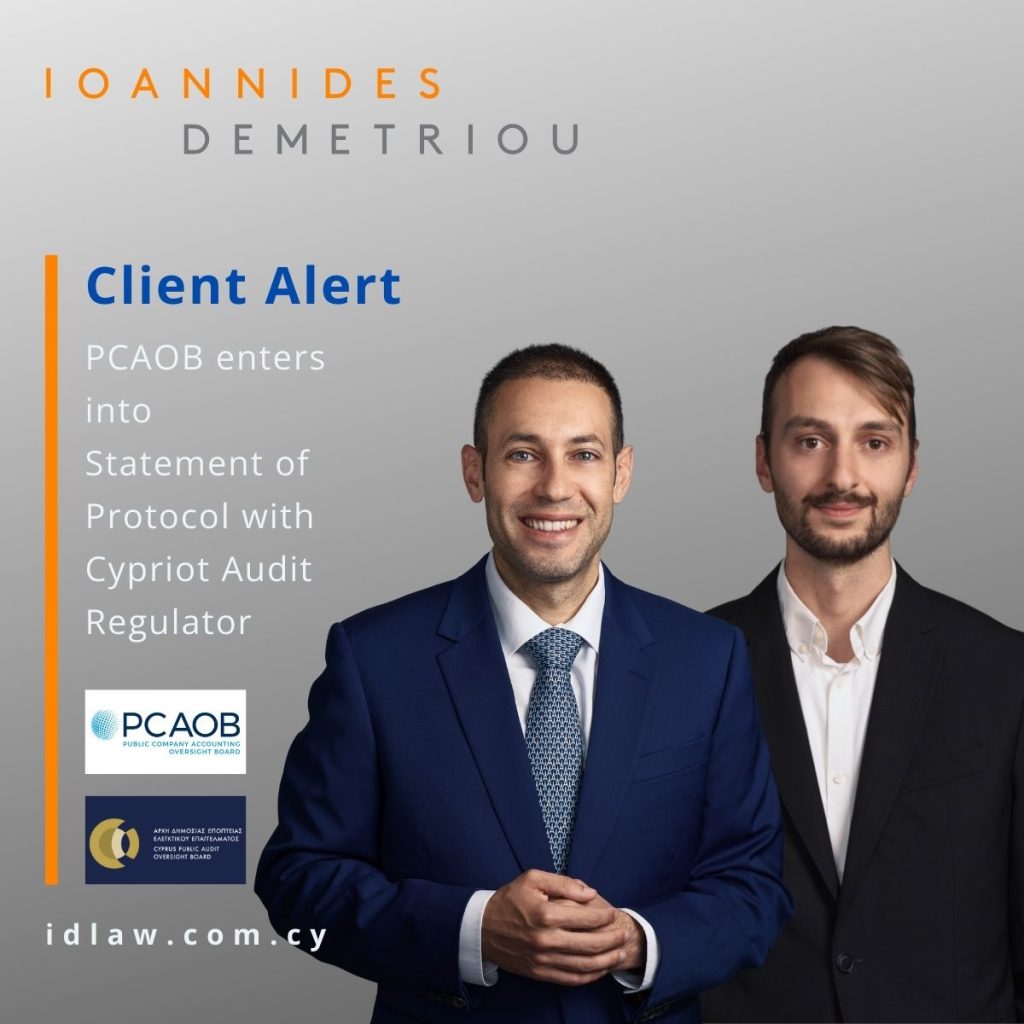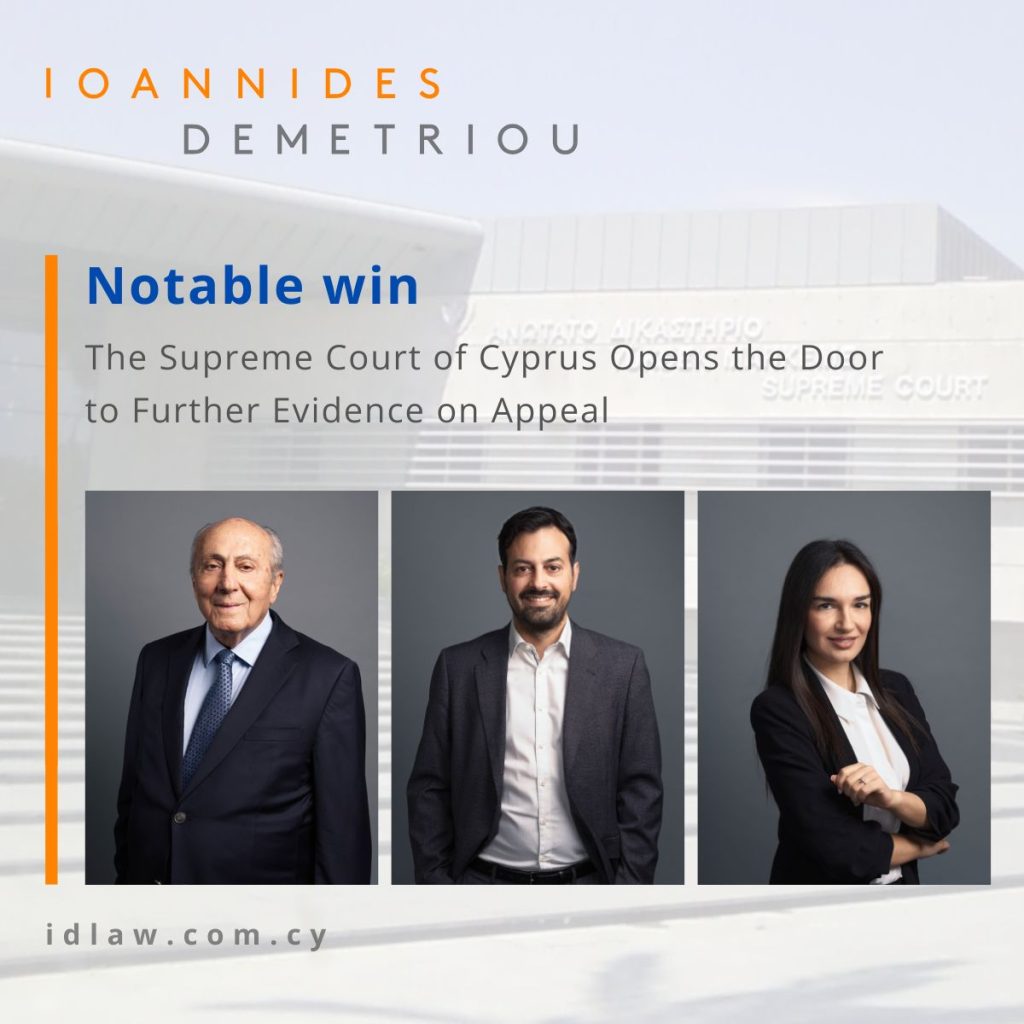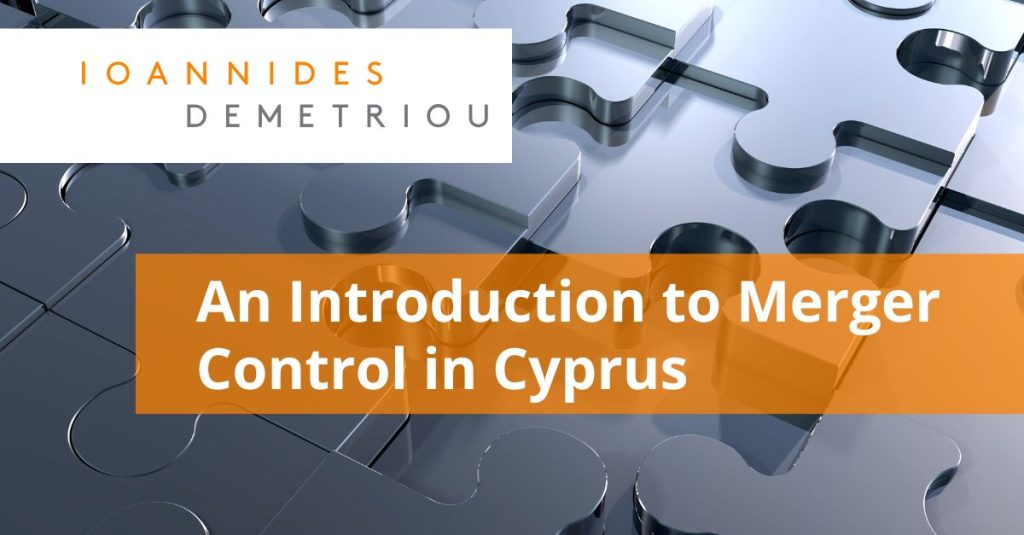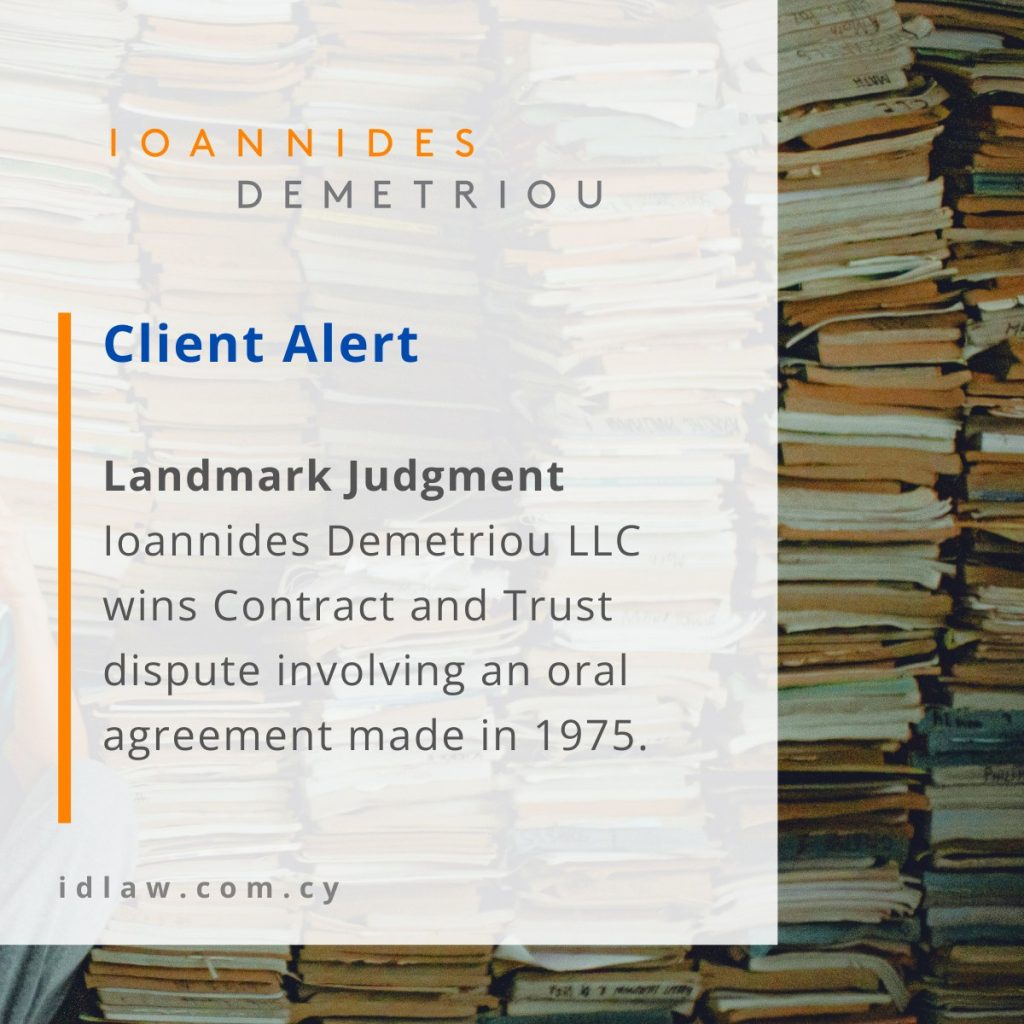Nayia Morphi cuts through the noise with a clear, brief expert view on Cyprus’ latest tax reform. Beyond the headline rate increases, she explains why many of the changes were inevitable, why several of them are genuinely positive, and how the reform enhances Cyprus’ credibility as a modern, predictable and competitive international business centre. With a focus on substance over headlines, the commentary highlights where the system has been simplified, where incentives have been strengthened, and what businesses, investors and individuals should actually pay attention to.
Corporate tax: rate increases from 12.5% to 15%.
– At first glance, the increase in the corporate tax rate from 12.5% to 15% may look like a setback. We see it differently, and we welcome it. This change was inevitable and it reflects the country’s deliberate alignment with global best practices, particularly the OECD Pillar II framework – an outcome that was widely anticipated and, in many respects, unavoidable. I view this as an improvement in the image of Cyprus as a reliable and predictable International Business Center. As far as the financial and other consequences of this amendment are concerned, these are compensated by important additional amendments like the abolition of stamp duty, the extension of the tax losses carryforward, the reduction in the dividend taxation and the enhancement of the R&D scheme.
Corporate tax: loss carryforward extended from 5 to 7 years.
– A clearly fairer measure which can be of great assistance to startup businesses which usually face significant tax losses at the beginning of their operations. So, good news! Businesses are now able to enjoy a longer extension of tax losses towards their taxable income and therefore reduce their tax bill for an extended period.
Corporate tax: 20% super-deduction for qualifying R&D expenditure is extended to 2030
– This is excellent news! The 20% super-deduction further reduces the royalty income subject to tax until tax year 2030.
Corporate tax: gains from Crypto taxed at the flat rate of 8%.
– Crypto gains have been on the spotlight and under scrutiny for a long time. The introduction of a fixed tax rate on gains is another advantageous provision which settles the dust, brings clarity and creates certainty. All this at a time where alternative investments are on the rise. With regulation on digital assets being discussed and, in the pipeline, such an amendment could properly structure investments in crypto via Cyprus based structures at a favorable tax rate.
Corporate tax: deemed dividend distribution is abolished.
– At last, this complicated and non-commercial mechanism comes to an end! A company is no longer forced to distribute 70% of its profits to the shareholders but can proceed with reinvestment without penalization. An absolutely fair measure which shall contribute to the development of companies and reinvestment while minimizing overcompliance and bureaucracy!
Corporate tax: interest income received by Cyprus tax resident companies only taxable under income tax.
– It was always confusing to have two forms of tax under which interest income was taxed. The decision was based on the nature of the income. This is now gone and it’s another form of simplification in an already advantageous tax system.
Stamp duty tax: fully abolished!
– Another complication and ambiguity removed! The payment of stamp duty was debatable for years and as it was a kind of “self-assessment” tax, often it was either omitted or avoided in unorthodox ways with high penalty and compliance risks. Its abolition is great news and another ode to simplicity and fairness!
Capital Gains Tax: extension of the definition of “property”
– The new definition includes shares in companies that own, directly or indirectly, shares in other companies whose asset base consists of immovable property by 20%. This amendment was a necessity to eliminate tax avoidance practices and tax capital gains resulting from immovable property. Let’s not forget that capital gains tax applies only on disposals of immovable property located in Cyprus only. All other forms of capital gains in disposing of other kinds of assets are completely tax free!
Personal tax: Increase of tax free income to Euro 22,000, extension of income tax bands and introduction of tax deductions to support families
– Lower taxation for all employees is always a positive development and one that helps with a more transparent declaration of employment income and a reduction in tax evasion. The amendments can lead to tax saving up to Euro 1585 for individuals. Time to reinvest the saving into your provident or pension plan!
The additional deductions represent more of a social measure to support families of lower income in their day-to-day life and essential household needs.
Personal tax: Employee share options schemes – Benefit-in-Kind taxed at 8% (T&C apply)
– Employee share option schemes are becoming a norm in tech and other companies which develop super-fast. Cyprus’ tax system was never geared towards such kind or more progressive forms of remuneration and ownership. It was about time we did so! Both the clarity on what an employee share option scheme is and the low taxation of 8% are absolutely awesome news which will create new possibilities for mega companies and not only, which are considering their European relocation.
Personal tax – Ex-gratia payments tax-free up to €200,000 anything greater is taxed at 20%
– This provision is more geared for the local market where ex-gratia payments have been a form of incentive for staff reduction in large organisations e.g. banks. The provision ends ambiguity on the tax treatment of such payments and introduces clarity and a preferential tax rate on the taxation of such income for individuals!
Personal tax: tax residency under the 60-day rule is simplified. You can be a tax resident in another country.
– This was an unnecessary condition in my view, so the amendment was another simplification to an already attractive tax residency route. After all, where dual residency is the case, one should examine the relevant Double Tax Treaties and particularly the tie-breaker clause for clarity. Where taxation has been paid twice, relief may be claimed through the Mutual Agreement Procedure.
Personal tax: extension of the non-domicile regime from 17 to 27 years subject to a lump sum payment of Euro 250,000 for each additional 5-year period.
– HNWIs of foreign origin who have chosen Cyprus as their country of tax residency and business setup, who have been here long enough to be eligible for Cypriot citizenship, should no longer worry about losing important tax benefits e.g. zero taxation on dividend and interest income. In simple mathematics, if a taxpayer expects to earn more than €5,000,000 in dividend income over a five-year period following the lapse of the 17-year window, the option for extension is a no brainer.
Personal tax: dividend taxation applicable to Cyprus domiciled and tax resident individuals is reduced to 5% (form 17%)
– A long-awaited and a fair adjustment in line with rates applicable in other European jurisdictions which is geared towards the Cyprus domiciled businessperson/investor. Cyprus-domiciled shareholders can now enjoy an aggregate tax of circa 20% on profits from their businesses/investments.







